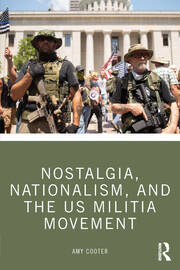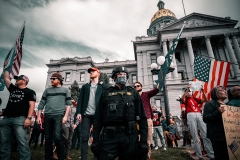CTEC Welcomes J.M. Berger and Sam Jackson
The Center on Terrorism, Extremism, and Counterterrorism (CTEC) at the Middlebury Institute for International Studies, Middlebury College is thrilled to announce that J.M. Berger and Dr. Sam Jackson are joining our analytic team as Senior Research Fellows.






